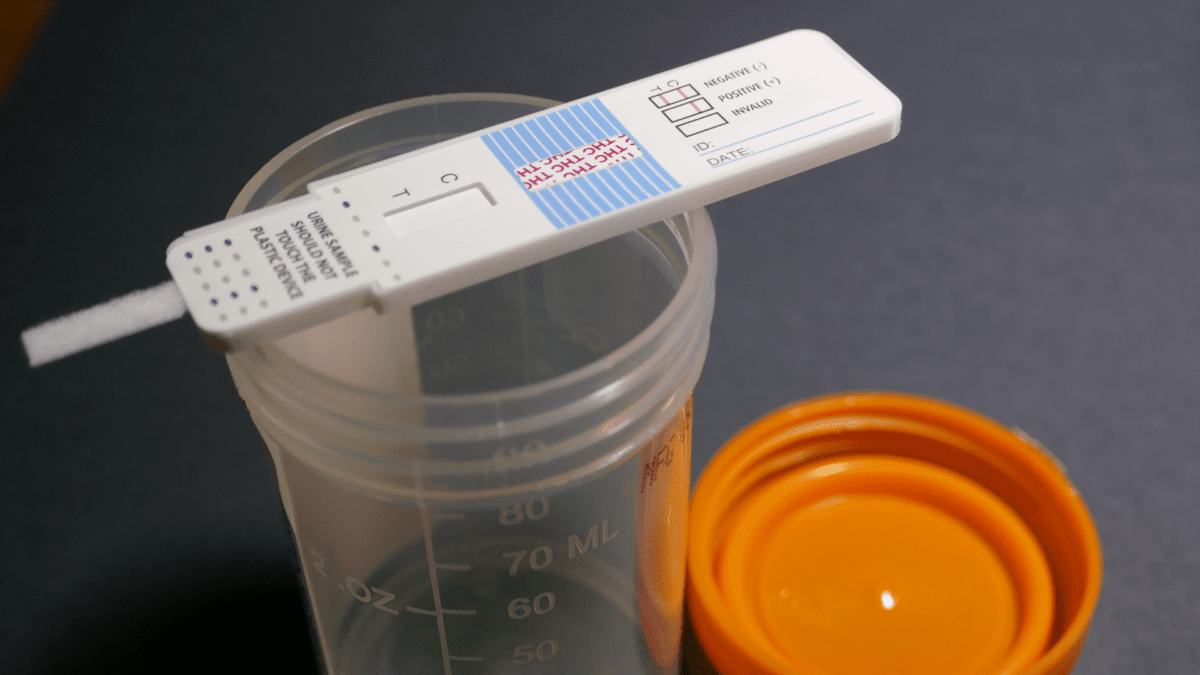Cannabidiol (CBD) products have been commercially available in the U.S., at a federal level, since the passage of the 2018 Farm Bill. What we know from a limited amount of studies is that even low amounts of THC may result in a positive urine drug screen. To gain a deeper understanding of how commercially available CBD products may affect a drug test, Realm of Caring submitted a study for Institutional Review Board (IRB) approval and recruited Colorado-based participants.
The purpose of the study was to help consumers make informed decisions about their cannabinoid therapy. An additional goal was to influence nanogram allowance within professional sports, particularly the NFL, as former Ravens offensive tackle Eugene Monroe served as inspiration and contributed funds to the study. At the time this study began, the NFL THC testing limit was at 35 ng/mL.
Findings were published in the February 2023 issue of Therapeutic Drug Monitoring.
To be eligible to participate, individuals had to have been taking an oral, hemp-derived CBD extract for at least 30 days with no other use of cannabis or illicit drugs in the previous two months. They provided two urine samples, one for immunoassay (IA) testing and the other frozen and shipped overnight to a third party lab for confirmatory testing.
Participants, on average, administered 1 ½ doses of hemp-derived, CBD extracts per day at an average of 31.18 mg per dose for at least one month.
For urine drug tests, cutoff levels are expressed using nanograms (ng) per millimeter (mL). The IA tests were at 20 ng/mL and 50 ng/mL.
Results showed that daily use of hemp-derived, CBD products consistently resulted in positive urine IA screens for THC at the detection level of 20 ng/mL (100%). When tested at the 50 ng/mL level, positive results were rare (16%).
To put these findings into perspective, federally-regulated workplace drug testing programs have an initial test cutoff level of 50 ng/mL and a confirmatory test cutoff level of 15 ng/mL. Olympic athletes follow The U.S. Anti-Doping Agency (USADA) guidelines, which has a urinary threshold set at 150 ng/mL. The NFL increased the THC cutoff level in 2021 from 35 ng/mL to 150 ng/mL, and only test for THC during the period between the start of training camp and each team’s first preseason game.
Authors concluded that future research should be completed to understand how to approach testing for hemp-derived THC. In addition, it is recommended that regulators reconsider the detection level of 20 ng/mL as it may result in many false-positive results for users of commercially available, hemp-derived CBD products.
⬜
Likelihood of Positive Urine Screens of THC-COOH After Daily Use of Full-Spectrum Hemp Extracts is authored by: Morgan L. Ferretti, MA; Ryan Vandrey, PhD; Jessica G. Irons, PhD; Heather Jackson, AA; Mallory J. Loflin, PhD; Travis Hyke, PhD; and Marcel O. Bonn-Miller, PhD
For general inquiries, please contact [email protected] or call (719) 347-5400
For media inquiries, please contact [email protected]
Join our research!
Realm of Caring and Johns Hopkins University School of Medicine have developed the Observational Research Registry (ORR) to better understand medicinal cannabis use and its impact on key health outcomes including healthcare utilization, chronic pain, anxiety and depression, caregiver burden, epilepsy, and posttraumatic stress disorder (PTSD). Our registered clients provide critical information that leads to important insights into the therapeutic capabilities of medicinal cannabis. The ORR helps us develop client educational resources and may ultimately serve to legitimize the medicinal use of cannabis.



